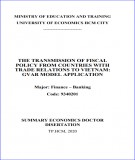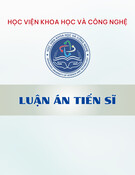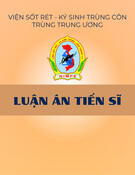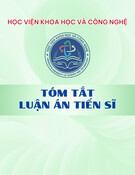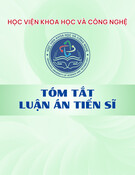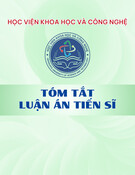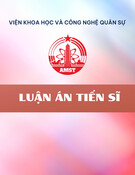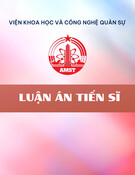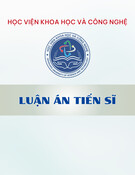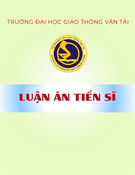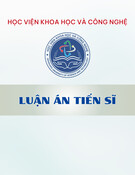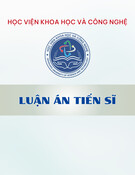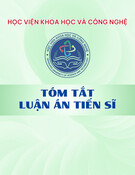20
LIST OF PUBLISHED WORKS
Science magazine
1. (2017 ) Financial Development, International Trade,
and Stock Market Integration: Evidence in Six Southeastern
Asia Countries.
2. (2018 ) The impact of trade openness on the level of
the transmission of exchange rate into inflation in Vietnam.
Research projects (2017):
1. Head of Project: Transmission of fiscal policy among
countries with trade relations: Application of GVAR model to
Vietnam.
2. Member: The effect of trade openness to the degree
of transmission of exchange rates into inflation in Vietnam .
Scientific conference
1. (2018 ) Spill-Over Effect of Fiscal Policy between
Vietnam and Its Trading Partners. ISBN 978-604-922-660-1
1
CHAPTER 1: INTRODUCTION
1.1 Background
When economies are open and integrated with the rest of the
world through international trade, shocks from one country can spread
to other countries through different channels. Therefore, the cross-
border effect of fiscal policy has become a common academic concept.
Many theories help explain the transmission mechanism of
international fiscal policy and draw different conclusions (Frenkel &
Razin, 1985, 1987; Fleming, 1962; Mundell, 1963; Svensson, 1987;
Reinhart, 1988). They found three main transmission channels,
including interest rates, terms of trade, commodity prices, which could
affect household consumption and output. This transmission can
create a "prosper-thy-neighbor" effect, if the fiscal stimulus abroad
leads to an increase in domestic output or the "beggar-thy-neighbor"
effect, if these effects are opposite.
Not only academically, the transmission of international fiscal
policy is also a matter of concern to policymakers around the world.
In an interview with the Financial Times on March 15, 2010, the head
of the International Monetary Fund (IMF) and French finance
minister, Christine Lagarde, said: “Berlin should consider boosting
domestic demand to help deficit countries to compete and reorganize
their public finance sector”. This implies that the change in German
government spending, considered the leading country of the European,
could transform the economies of other countries in the region.
However, expanding the economy in large countries sometimes will
not enhance the wealth of less-developed countries as mentioned in
the research of Knight & Masson (1987) and Lewis (1980). The effect
of international fiscal transmission may be altered by the various






